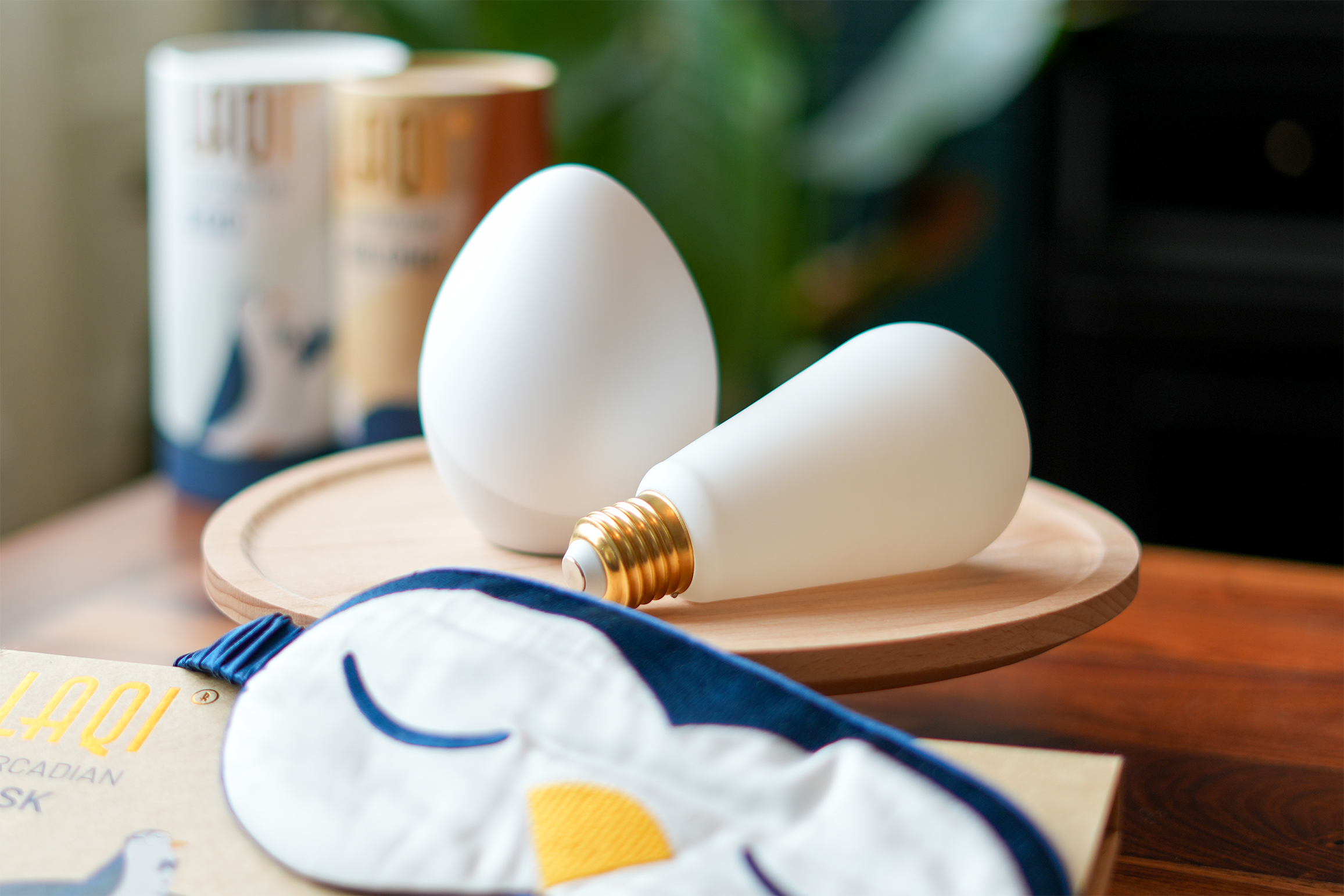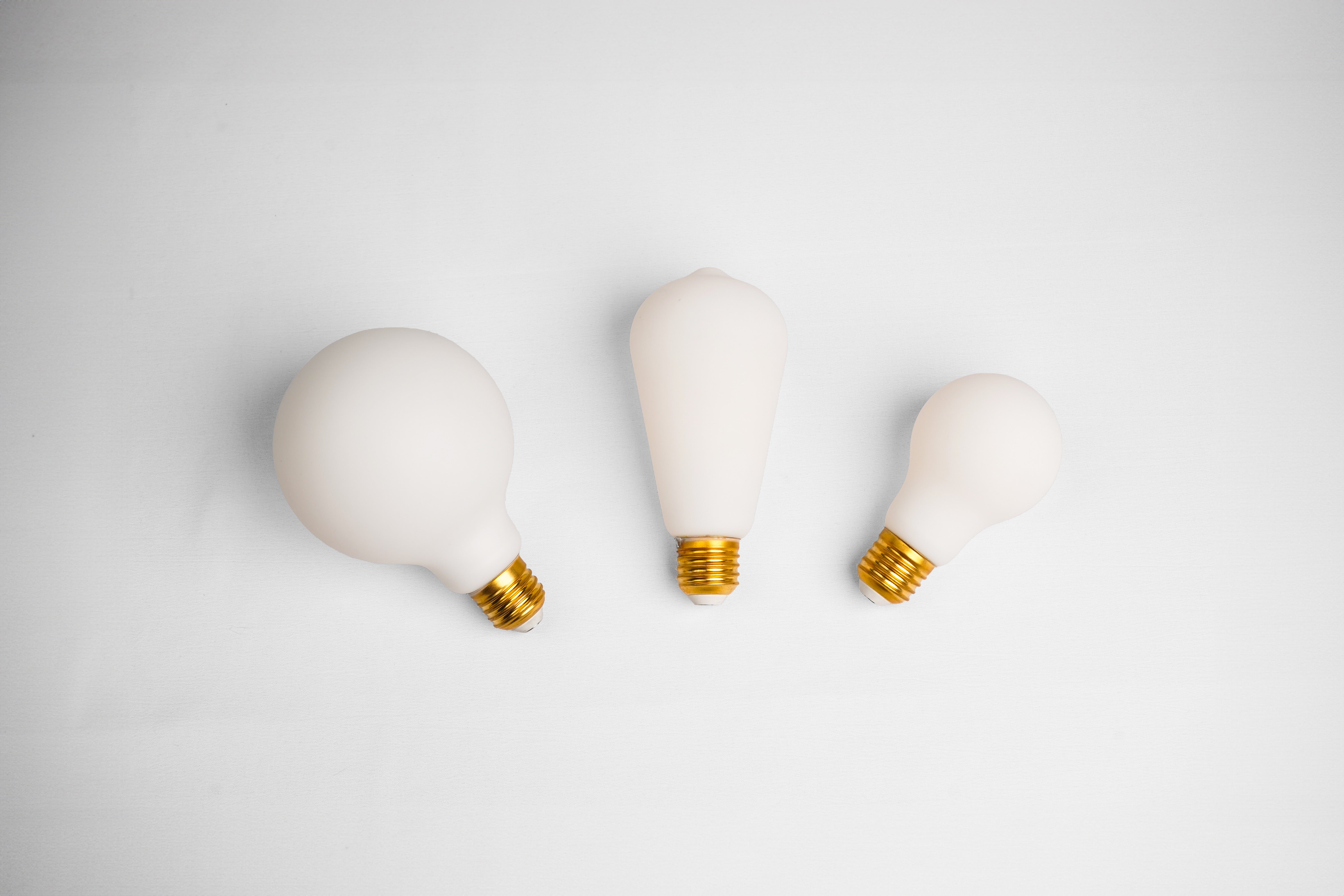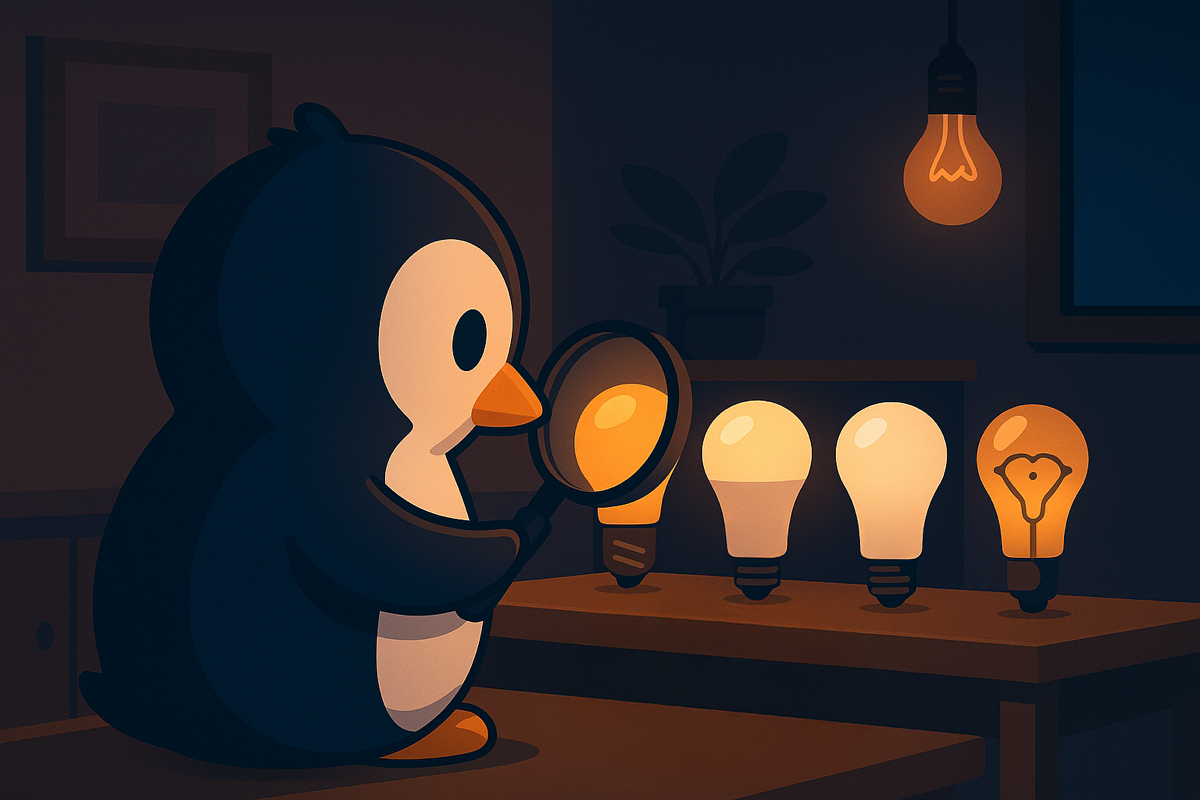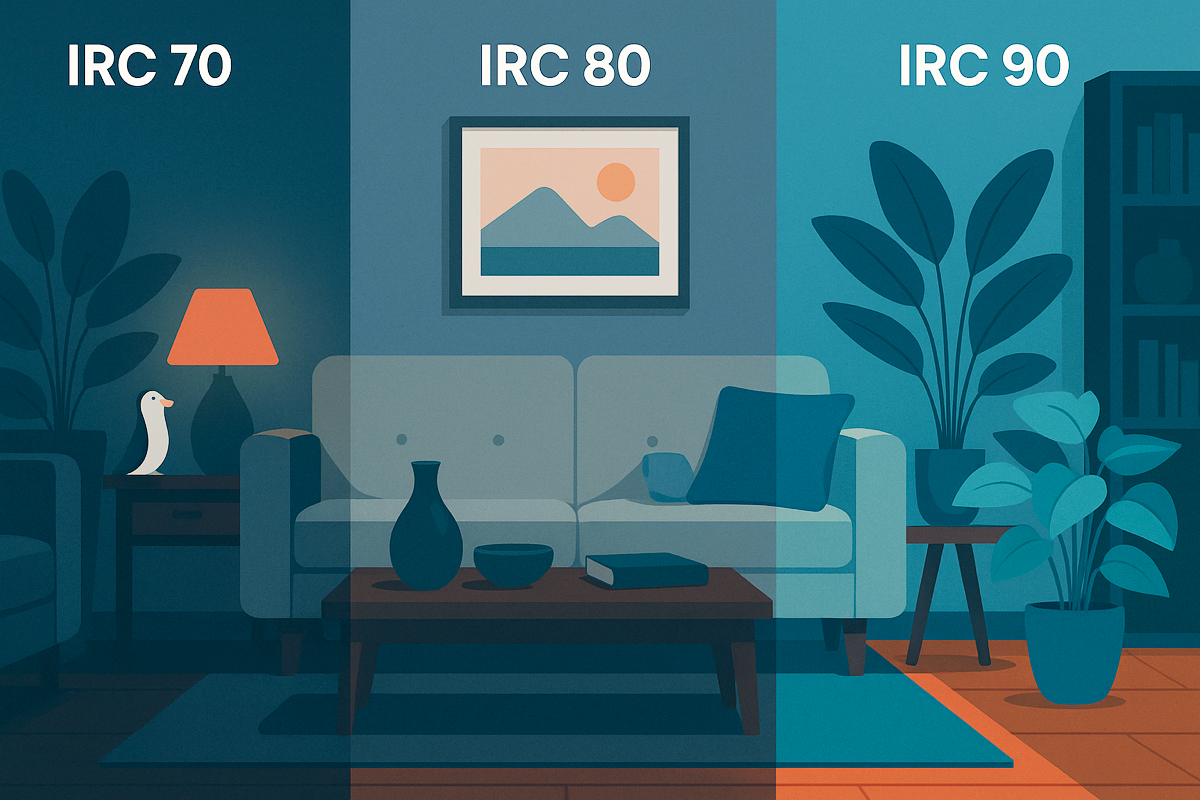Reading time: 5 min
What is a good smart bulb?
In 2025, a connected light bulb no longer just provides light. It integrates into our lives, automates our rhythms, tracks our habits, and sometimes even... thinks for us. Yet, between real automation and marketing illusion, the differences are glaring. Some program themselves, while others require you to take out your phone at sunrise or sunset. This comparison pits four iconic models against each other—with a critical eye on their interface, their actual intelligence, their health impact... and their potential laziness.
Should you invest in a premium model like Laqi or Philips? Can you trust an entry-level connected model? And beyond price, which one offers the best user experience without sacrificing your well-being? Here's our verdict.
📌 Summary
🍫 Lidl Livarno Lux
Price: €9.99
- Pros: Great value for money, simple app
- Cons: Everything is manual, no circadian tracking
- Automation: ❌ No native automation
- Interface: Basic but functional
- Health: Does not regulate temperature or intensity
👉🏻 For a connected lighting ambiance at a low price, but without magic.
🥉 Xiaomi Mi LED Smart Bulb
Price: €15.90
- Pros: Multicolor, good Google Home integration
- Cons: No smart tracking, everything goes through the app
- Automation: ⚠️ Programmable, but requires manual routines
- Interface: Simple but sometimes unstable
- Health: White light is too cold in the evening
👉🏻 Nice entry-level product for tinkering fans, less so for those who like to sleep.
🥈 Philips Hue White Ambiance
Price: €34.99
- Advantages: Reliable, compatible with many systems
- Cons: Cluttered interface, high price for little native intelligence
- Automation: ⚠️ Possible scenes but everything goes through routines created by hand
- Interface: Heavy, not intuitive
- Health: Can follow a cycle if well configured, but does not adapt on its own
👉🏻 Lots of potential… if you like spending time in settings.
🥇 Laqi Circadian Bulb
Price: €29
- Benefits: Automatically adapts to your pace, made in France 🇫🇷
- Cons: Requires the Laqi Egg to function
- Automation: ✅ Complete (geolocation, sunrise/sunset, light sensors)
- Interface: Discreet, intuitive, designed to be forgotten
- Health: Based on 2022 scientific recommendations, follows the natural curve of the sun
👉🏻 It's the only light bulb that follows you, without you having to follow it.
⚖️ Final verdict
Most smart light bulbs claim to be smart, but very few actually are. If you're looking for a simple color change, Lidl or Xiaomi will do the trick. If you want a solution that takes care of you—without the hassle—Laqi wins. A French light bulb, designed to automate your environment, and that doesn't need your help to function properly. We call it truly smart lighting.
💬 FAQ
Do all smart bulbs require a hub?
No. Only the Laqi bulb requires the egg for automatic circadian rhythm management. The others work with Wi-Fi or Bluetooth.
Are colored light bulbs better for your health?
Not necessarily. What matters is the temperature and intensity at the time of day, not the fancy color.
Can I use a circadian bulb as a regular lamp?
Yes, but that would be a shame. It really comes into its own when it automatically manages your day/night rhythm.
Choosing a good light bulb means choosing a light that thinks for you.
What if you finally let the light adapt to you, and not the other way around?














